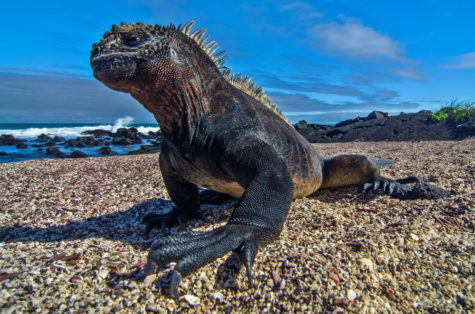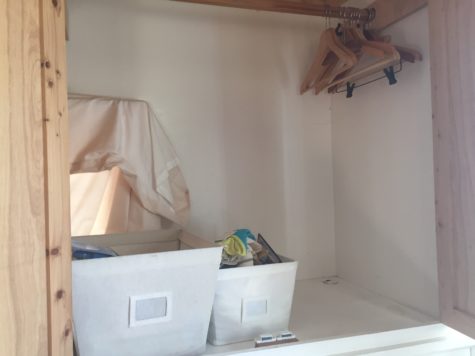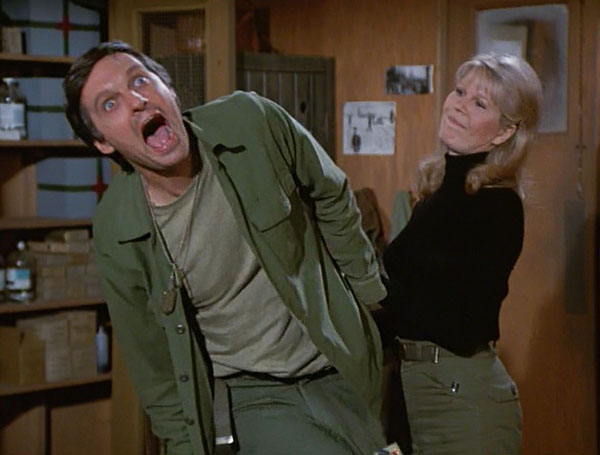 So, summer is coming to an end again (damn you, ephemeral summer!) and I’ve been thinking about past summers’ best adventures. For me, a best adventure is always going to include wild animals. In this case, it was the funny-faced marine iguanas I met in the Galapagos. They didn’t give a shit about me, but I fell hard for them. My one-sided love story, from last August, is reprinted below.
So, summer is coming to an end again (damn you, ephemeral summer!) and I’ve been thinking about past summers’ best adventures. For me, a best adventure is always going to include wild animals. In this case, it was the funny-faced marine iguanas I met in the Galapagos. They didn’t give a shit about me, but I fell hard for them. My one-sided love story, from last August, is reprinted below.
I was in the Galapagos Islands in July, which felt a bit like traveling to another planet. At least, that’s what I’d imagine an interplanetary hop to be like. The land features are familiar and yet not quite—lava fields still sharp and freshly black or dotted with hopeful plant life, colossal rocks turned to sculpture by water and wind, animals that are recognizable except acting strangely (birds that swim instead of fly, seals that bask under cacti, giant lizards that glom onto coral and munch algae—under water).
It’s that last one, the marine iguana—endemic to the Galapagos, as many animals there are—that I’ll focus on here. I fell in love with these weird little dudes, warts and all. Visitors encounter plenty of the reptiles on land—where they’re just a bit speedier than tortoises, when moving at all. Mostly, they just lie still, spread out and basking. Where old lava meets the sea they’re all over the place, sometimes packed together for warmth (especially the young ones). There are brown ones, but most are ashy gray or black, some with white markings, even wholly white tails, that help turn them invisible on the bird-poop-streaked rocks. (I don’t know if bird poop actually drove this patchy coloration, but it hides them well.) Apparently, during mating time, their skin may turn rosy, as if blushing. I guess when lizard love is in the air, never mind camouflage.
Continue reading →
 This post was first published in March of last year; sadly, it’s more relevant than ever.
This post was first published in March of last year; sadly, it’s more relevant than ever.





 So, summer is coming to an end again (damn you, ephemeral summer!) and I’ve been thinking about past summers’ best adventures. For me, a best adventure is always going to include wild animals. In this case, it was the funny-faced marine iguanas I met in the Galapagos. They didn’t give a shit about me, but I fell hard for them. My one-sided love story, from last August, is reprinted below.
So, summer is coming to an end again (damn you, ephemeral summer!) and I’ve been thinking about past summers’ best adventures. For me, a best adventure is always going to include wild animals. In this case, it was the funny-faced marine iguanas I met in the Galapagos. They didn’t give a shit about me, but I fell hard for them. My one-sided love story, from last August, is reprinted below.